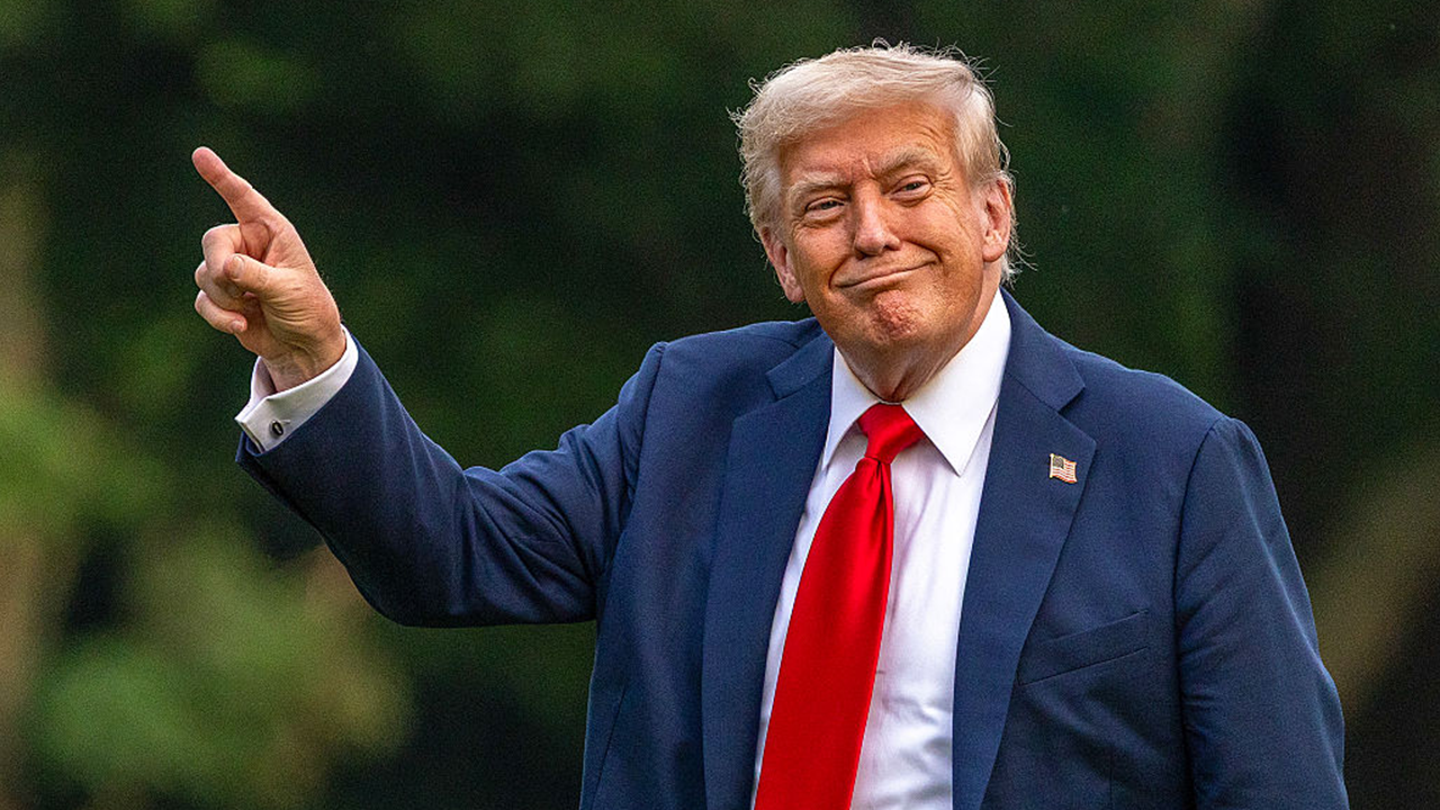
California Republicans sue to stop Newsom, Democrats from pushing redistricting plan
Entities mentioned:
- California Republicans: Justice, Self-preservation, Duty
- Gov. Gavin Newsom: Power, Ambition, Control
- California Democrats: Power, Control, Influence
- Tri Ta: Justice, Duty, Righteousness
- Kate Sanchez: Justice, Duty, Righteousness
- Texas Republicans: Power, Control, Self-preservation
- Greg Abbott: Power, Control, Influence
- Donald Trump: Power, Influence, Control
- Arnold Schwarzenegger: Justice, Duty, Righteousness
- Kevin McCarthy: Power, Influence, Self-preservation
Article Assessment:
Credibility Score: 75/100
Bias Rating: 55/100 (Center)
Sentiment Score: 35/100
Authoritarianism Risk: 65/100 (Authoritarian Tendencies)
Bias Analysis:
The article presents views from both Republican and Democratic sides, though it gives slightly more space to Republican arguments. It includes quotes from multiple sources and provides context for the redistricting issue in both states.
Key metric: Electoral Integrity Index
As a social scientist, I analyze that this article highlights a significant battle over redistricting in California and Texas, which could have major implications for the balance of power in the U.S. House of Representatives. The push by California Democrats to temporarily replace the state's nonpartisan redistricting commission with a legislature-controlled process is likely to decrease electoral integrity and increase partisan gerrymandering. This move, along with the similar efforts by Texas Republicans, demonstrates how both major parties are willing to manipulate electoral systems for political gain. The legal challenges and public opposition, particularly from figures like Arnold Schwarzenegger, indicate a strong pushback against these efforts to centralize redistricting power. This conflict underscores the tension between partisan interests and democratic principles in the American political system, potentially eroding public trust in electoral processes and institutions.

Ex-Paramount chief hoped Trump lawsuit would force CBS to be more balanced on Israel
Entities mentioned:
- Shari Redstone: Influence, Justice, Professional pride
- Donald Trump: Power, Justice, Revenge
- CBS News: Professional pride, Influence, Recognition
- Paramount: Self-preservation, Influence, Professional pride
- Tony Dokoupil: Professional pride, Justice, Duty
- Bill Owens: Professional pride, Righteousness, Self-respect
- Scott Pelley: Professional pride, Loyalty, Concern
Article Assessment:
Credibility Score: 70/100
Bias Rating: 65/100 (Lean Right)
Sentiment Score: 35/100
Authoritarianism Risk: 45/100 (Mixed/Neutral)
Bias Analysis:
The article leans slightly right, focusing on criticisms of CBS's perceived anti-Israel bias and highlighting conservative viewpoints. While it presents some balancing information, the overall framing favors the perspective of those critical of CBS's coverage.
Key metric: Media Trust and Credibility
As a social scientist, I analyze that this article highlights the complex interplay between media ownership, editorial decisions, and political influence in shaping news coverage. The controversy surrounding CBS's coverage of the Israel-Hamas conflict reveals tensions between journalistic integrity, corporate interests, and personal biases. Redstone's apparent hope that Trump's lawsuit could influence CBS's editorial stance raises concerns about the independence of news media and the potential for powerful individuals to shape public narratives. This situation underscores the challenges in maintaining balanced reporting on sensitive geopolitical issues and the internal conflicts that can arise within media organizations when trying to navigate these complexities.

Kristi Noem reveals striking new layer in Trump’s border wall strategy
Entities mentioned:
- Kristi Noem: Duty, Loyalty, Security
- Donald Trump: Control, Security, Influence
- Border Patrol: Duty, Security, Professional pride
- Walter Slosar: Security, Professional pride, Duty
- Biden administration: Righteousness, Moral outrage, Obligation
Article Assessment:
Credibility Score: 65/100
Bias Rating: 75/100 (Lean Right)
Sentiment Score: 70/100
Authoritarianism Risk: 65/100 (Authoritarian Tendencies)
Bias Analysis:
The article leans right, presenting the Trump administration's border policies in a positive light while criticizing the Biden administration. It relies heavily on statements from officials aligned with the current administration, offering limited counterpoints or alternative perspectives.
Key metric: Immigration and Border Security
As a social scientist, I analyze that this article highlights a significant shift in border security policy under the Trump administration. The decision to paint the border wall black represents a hardening of physical deterrents, while the reported decrease in apprehensions and 'gotaways' suggests increased effectiveness of enforcement measures. The stark contrast drawn between current policies and those of the Biden administration implies a narrative of improved security and law enforcement morale. However, this approach may exacerbate tensions surrounding immigration policy and human rights concerns. The emphasis on physical barriers and stricter enforcement could impact diplomatic relations with neighboring countries and influence public perception of immigrants. The long-term socioeconomic effects of these policies on both sides of the border warrant careful consideration.

James Carville: Dems need a presidential nominee
Entities mentioned:
- James Carville: Influence, Recognition, Duty
- Democrats: Ambition, Power, Anxiety
- Bill Maher: Influence, Recognition, Freedom
- Donald Trump: Power, Control, Righteousness
- Jesse Watters: Influence, Recognition, Competitive spirit
Article Assessment:
Credibility Score: 55/100
Bias Rating: 65/100 (Lean Right)
Sentiment Score: 35/100
Authoritarianism Risk: 55/100 (Mixed/Neutral)
Bias Analysis:
The article leans right due to its framing on a Fox News program and focus on Democratic party weaknesses. The presentation of Carville's criticism of Democrats and the emphasis on Trump's actions suggest a right-leaning perspective.
Key metric: Political Polarization Index
As a social scientist, I analyze that this article highlights the growing political divide and communication challenges within the Democratic party. Carville's criticism of Democrats' reluctance to engage with media figures like Bill Maher suggests internal party tensions and strategic disagreements. The mention of Trump's federal takeover of D.C. police further emphasizes the polarization between parties and concerns over executive power. This discourse likely contributes to increased political polarization, as it underscores the lack of unified messaging within the Democratic party and the ongoing conflicts with the Republican administration.

Boston’s Wu fires back at Bondi, citing Revolution, as other cities slam feds over ‘sanctuary’ warnings
Entities mentioned:
- Michelle Wu: Righteousness, Moral outrage, Determination
- Pam Bondi: Control, Power, Duty
- Trump administration: Control, Power, Fear
- Bob Ferguson: Righteousness, Determination, Loyalty
- William Tong: Justice, Determination, Duty
- Renee Garcia: Duty, Wariness, Professional pride
Article Assessment:
Credibility Score: 70/100
Bias Rating: 35/100 (Lean Left)
Sentiment Score: 30/100
Authoritarianism Risk: 45/100 (Mixed/Neutral)
Bias Analysis:
The article leans left in its framing, giving more space and detail to the arguments of Democratic leaders opposing the Trump administration's policies. While it includes some opposing viewpoints, the tone and selection of quotes favor the sanctuary city perspective.
Key metric: Immigration Enforcement Cooperation
As a social scientist, I analyze that this article highlights the growing tension between federal and local governments regarding immigration enforcement policies. The conflict centers on 'sanctuary city' policies, which limit local cooperation with federal immigration authorities. This disagreement impacts the key metric of Immigration Enforcement Cooperation, as it demonstrates a significant rift in how different levels of government approach immigration issues. The strong pushback from city and state leaders against federal threats suggests a potential decrease in local-federal cooperation on immigration matters, which could lead to reduced effectiveness of federal immigration policies and increased protection for undocumented immigrants in certain jurisdictions. This conflict also underscores broader issues of federalism and the balance of power between state and federal governments in the United States.

White House rejects ‘blank checks’ for Ukraine, presses NATO to shoulder costs
Entities mentioned:
- White House: Self-preservation, Control, Influence
- President Donald Trump: Ambition, Control, Influence
- Karoline Leavitt: Duty, Loyalty, Professional pride
- NATO: Security, Unity, Obligation
- Congress: Duty, Influence, Security
- JD Vance: Influence, Duty, Righteousness
- Volodymyr Zelenskyy: Self-preservation, Determination, Security
Article Assessment:
Credibility Score: 70/100
Bias Rating: 65/100 (Lean Right)
Sentiment Score: 45/100
Authoritarianism Risk: 35/100 (Generally Democratic)
Bias Analysis:
The article leans slightly right, focusing more on the Trump administration's perspective and quoting primarily Republican officials. While it includes some factual information, the framing tends to present the administration's view more prominently than alternative viewpoints.
Key metric: U.S. Military Spending
As a social scientist, I analyze that this article reflects a significant shift in U.S. foreign policy regarding military aid to Ukraine. The Trump administration is attempting to reduce direct U.S. financial involvement while maintaining support through alternative means, such as facilitating weapon sales through NATO. This approach aims to balance domestic fiscal concerns with international security commitments. The emphasis on European allies taking greater responsibility suggests a recalibration of U.S. global military engagement and spending priorities. This policy shift could have substantial implications for U.S. military spending, potentially reducing direct aid to Ukraine while promoting arms sales to NATO allies. The long-term impact on U.S. global influence and military strategy remains uncertain, as it depends on how effectively this new approach maintains stability in Eastern Europe and deters further Russian aggression.

Trump praises Melania’s ‘beautiful note’ to Putin, says Zelenskyy brought letter from wife to first lady
Entities mentioned:
- Melania Trump: Righteousness, Influence, Compassion
- Donald Trump: Power, Influence, Recognition
- Vladimir Putin: Power, Control, Self-preservation
- Volodymyr Zelenskyy: Justice, Duty, Unity
- Dana Perino: Professional pride, Influence, Duty
Article Assessment:
Credibility Score: 65/100
Bias Rating: 70/100 (Lean Right)
Sentiment Score: 55/100
Authoritarianism Risk: 35/100 (Generally Democratic)
Bias Analysis:
The article leans right, primarily due to its reliance on Fox News sources and positive framing of Trump administration actions. It presents a favorable view of Melania Trump's involvement without critically examining the broader context or effectiveness of such interventions.
Key metric: U.S. Diplomatic Influence
As a social scientist, I analyze that this article highlights the use of soft power diplomacy through the involvement of First Lady Melania Trump in the Ukraine-Russia conflict. The personal appeal to Putin, focusing on children's welfare, represents an attempt to leverage emotional and moral arguments in international relations. This approach could potentially impact U.S. diplomatic influence by presenting a more multifaceted and humanitarian-focused foreign policy. However, the effectiveness of such methods in resolving complex geopolitical conflicts remains questionable, especially given the limited decision-making power of first ladies in formal diplomacy.

Kristi Noem: Sen. Padilla Had Even Deadlier Opinion That Failed To Go Off
Entities mentioned:
- Kristi Noem: Self-preservation, Control, Fear
- Alex Padilla: Righteousness, Moral outrage, Duty
- Homeland Security: Control, Security, Power
- Federal agents: Duty, Security, Professional pride
Article Assessment:
Credibility Score: 30/100
Bias Rating: 35/100 (Lean Left)
Sentiment Score: 25/100
Authoritarianism Risk: 70/100 (Authoritarian Tendencies)
Bias Analysis:
The article leans left, using satire to criticize right-wing figures and policies. It exaggerates conservative rhetoric about security threats, mocking the idea that dissenting opinions are dangerous.
Key metric: Freedom of Speech Index
As a social scientist, I analyze that this article satirically portrays a hyperbolic reaction to political dissent, exaggerating the perceived threat of opposing viewpoints. It metaphorically equates opinions with weapons, suggesting an environment where free speech is under threat. The piece ironically frames differing political views as potentially lethal, highlighting concerns about the suppression of diverse perspectives in democratic discourse. This satire underscores tensions between security measures and civil liberties, particularly freedom of speech, in the current political climate.

Supreme Court Rules 6-3 That Everyone A Damn Critic
Entities mentioned:
- Supreme Court: Justice, Power, Self-respect
- Chief Justice John Roberts: Indignation, Professional pride, Control
- Justice Sonia Sotomayor: Justice, Duty, Righteousness
- Rehnquist Court: Legacy, Influence, Justice
Article Assessment:
Credibility Score: 30/100
Bias Rating: 45/100 (Center)
Sentiment Score: 35/100
Authoritarianism Risk: 40/100 (Generally Democratic)
Bias Analysis:
The article maintains a centrist position by mocking both the Court's perceived defensiveness and public criticism. It doesn't lean strongly towards either political side, instead focusing on the broader dynamic between the institution and its critics.
Key metric: Trust in Government Institutions
As a social scientist, I analyze that this satirical article humorously reflects growing public scrutiny and criticism of the Supreme Court. The fictional ruling suggests a defensiveness among justices, potentially indicating real-world tensions between the Court and public opinion. This satire could impact trust in government institutions by highlighting perceived disconnects between the Court and the public, while also serving as a form of social commentary on the relationship between judicial authority and public accountability.

How Trump and Zelensky’s relationship has evolved since remarkable Oval Office shouting match in February
Entities mentioned:
- Donald Trump: Power, Control, Legacy
- Volodymyr Zelensky: Self-preservation, Determination, Unity
- Vladimir Putin: Power, Control, Influence
- European Leaders: Unity, Security, Influence
- JD Vance: Loyalty, Righteousness, Recognition
Article Assessment:
Credibility Score: 75/100
Bias Rating: 45/100 (Center)
Sentiment Score: 35/100
Authoritarianism Risk: 55/100 (Mixed/Neutral)
Bias Analysis:
The article presents multiple perspectives and includes details from various sources, maintaining a relatively balanced view. However, there's a slight lean towards framing Trump's actions as potentially problematic for US-Europe relations.
Key metric: US International Diplomatic Influence
As a social scientist, I analyze that this article highlights a significant shift in US-Ukraine relations and the broader geopolitical landscape. Trump's evolving approach to the Ukraine conflict, from confrontational to seemingly more conciliatory, suggests a potential realignment of US foreign policy priorities. The contrast between Trump's treatment of Putin and Zelensky indicates a complex balancing act that could impact US credibility among allies. The involvement of multiple European leaders in the upcoming talks underscores the international community's concern and desire to influence the outcome. This situation could significantly affect US diplomatic influence, potentially weakening traditional alliances while opening new avenues for negotiation with adversaries.